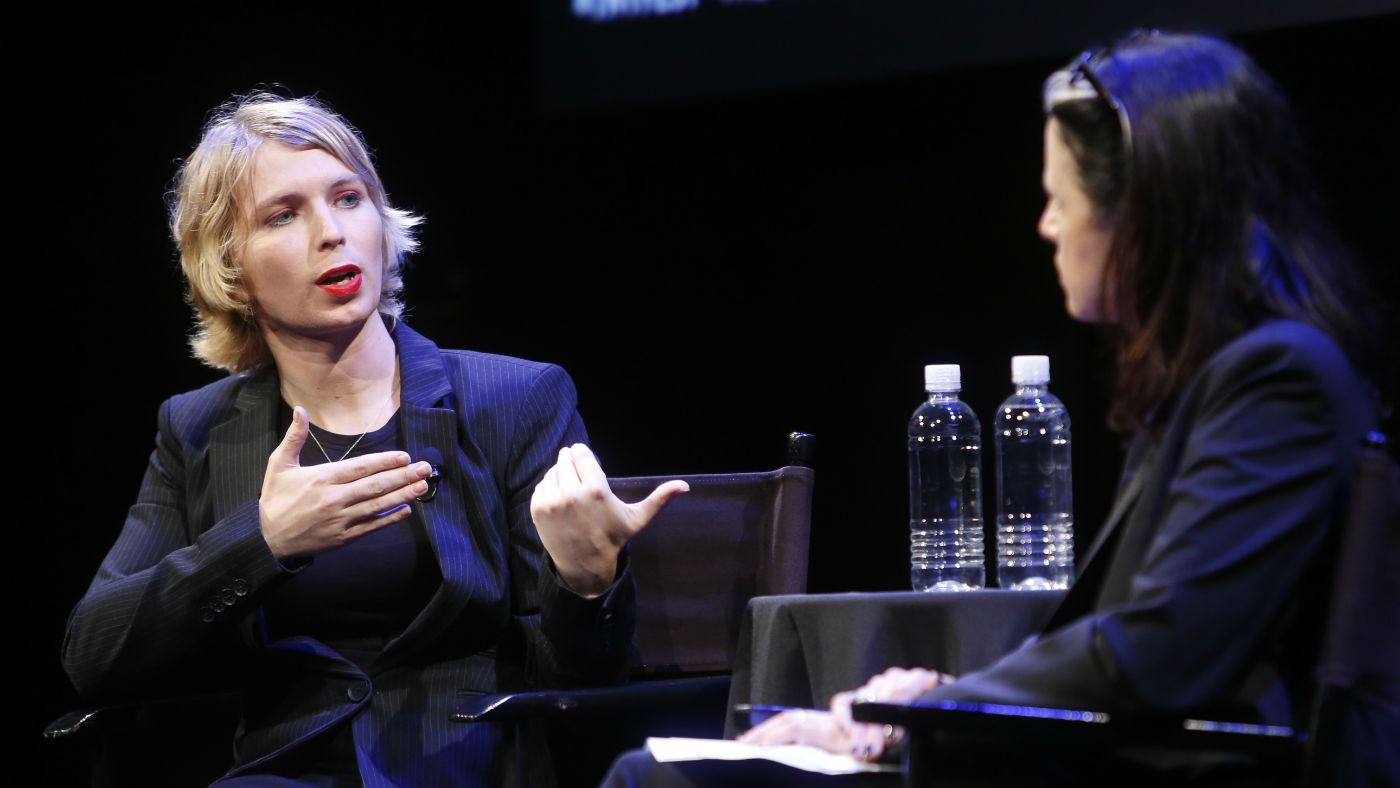Why Chelsea Manning is banned from Australia
US whistle-blower still confident of obtaining visa for speaking tour as supporters lobby immigration minister

A free daily email with the biggest news stories of the day – and the best features from TheWeek.com
You are now subscribed
Your newsletter sign-up was successful
Former US soldier Chelsea Manning says she remains hopeful of being allowed to visit Australia despite her visa application being denied by the federal government this week.
The US whistle-blower, who was jailed for sharing classified government documents, was due to arrive in Australia today before giving a speech at the Sydney Opera House on Sunday night. Similar talks are scheduled in Brisbane and Melbourne.
However, in a notice sent to Manning on Wednesday, Australia’s Department of Home Affairs said she had not passed the character test required for entry into the country, because of her “substantial criminal record”. The former US army private spent seven years in a military prison after being convicted of leaking nearly 750,000 classified military and diplomatic documents to WikiLeaks.
The Week
Escape your echo chamber. Get the facts behind the news, plus analysis from multiple perspectives.

Sign up for The Week's Free Newsletters
From our morning news briefing to a weekly Good News Newsletter, get the best of The Week delivered directly to your inbox.
From our morning news briefing to a weekly Good News Newsletter, get the best of The Week delivered directly to your inbox.
She was released in May 2017, after Barack Obama commuted her original 35-year sentence.
Think Inc, the Australian organiser of Manning’s speaking tour, has written to her supporters asking them to lobby Australia’s new immigration minister, David Coleman, says The Guardian.
“We have just received a notice of intention to consider refusal under s501 of the Migration Act from the Australian government in regards to Chelsea’s visa,” wrote the company’s director, Suzi Jamil.
“We are looking for support from relevant national bodies or individuals, especially politicians who can support Chelsea’s entry into Australia. We are seeking letters of support to send to the minister for immigration in order for him to reconsider his decision.”
A free daily email with the biggest news stories of the day – and the best features from TheWeek.com
Meanwhile, Manning told The Guardian’s Australian edition that “we’ll work it out”.
Politicians and human rights groups are lobbying the government of new Australian prime minister Scott Morrison to reverse its decision on Manning, arguing that “free speech means opponents of government policy should not be barred from entry”, the newspaper reports.
Hugh de Kretser, executive director of Australia’s Human Rights Law Centre, told The Guardian: “As a democracy, we should be encouraging, not banning, public contributions from people like Chelsea Manning.
“She’s generating vital debate around issues like secret mass surveillance of citizens by governments. The visa should be granted.”
But not everyone agrees. In an article published on Australian news site ABC, Rodger Shanahan, from the Lowy Institute of International Policy, wrote: “Manning is not, and never has been, a whistle-blower. She is someone convicted of espionage who was given a long prison sentence.”
Therefore, Shanahan argues, the “Australian Government is well within its rights to question whether someone convicted of espionage, dishonourably discharged from the US military and whose reckless actions while deployed on operations were described by a judge as dangerous to others should enter the country, let alone be paid for her appearance”.
-
 The environmental cost of GLP-1s
The environmental cost of GLP-1sThe explainer Producing the drugs is a dirty process
-
 Greenland’s capital becomes ground zero for the country’s diplomatic straits
Greenland’s capital becomes ground zero for the country’s diplomatic straitsIN THE SPOTLIGHT A flurry of new consular activity in Nuuk shows how important Greenland has become to Europeans’ anxiety about American imperialism
-
 ‘This is something that happens all too often’
‘This is something that happens all too often’Instant Opinion Opinion, comment and editorials of the day
-
 Epstein files topple law CEO, roil UK government
Epstein files topple law CEO, roil UK governmentSpeed Read Peter Mandelson, Britain’s former ambassador to the US, is caught up in the scandal
-
 Iran and US prepare to meet after skirmishes
Iran and US prepare to meet after skirmishesSpeed Read The incident comes amid heightened tensions in the Middle East
-
 Israel retrieves final hostage’s body from Gaza
Israel retrieves final hostage’s body from GazaSpeed Read The 24-year-old police officer was killed during the initial Hamas attack
-
 China’s Xi targets top general in growing purge
China’s Xi targets top general in growing purgeSpeed Read Zhang Youxia is being investigated over ‘grave violations’ of the law
-
 Panama and Canada are negotiating over a crucial copper mine
Panama and Canada are negotiating over a crucial copper mineIn the Spotlight Panama is set to make a final decision on the mine this summer
-
 Why Greenland’s natural resources are nearly impossible to mine
Why Greenland’s natural resources are nearly impossible to mineThe Explainer The country’s natural landscape makes the task extremely difficult
-
 Iran cuts internet as protests escalate
Iran cuts internet as protests escalateSpeed Reada Government buildings across the country have been set on fire
-
 US nabs ‘shadow’ tanker claimed by Russia
US nabs ‘shadow’ tanker claimed by RussiaSpeed Read The ship was one of two vessels seized by the US military